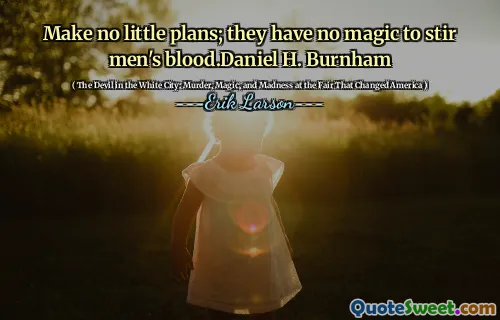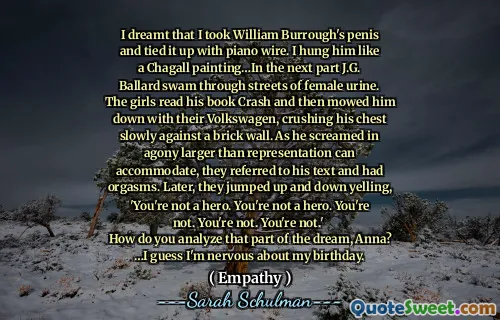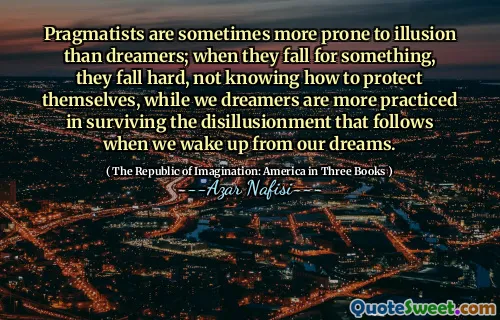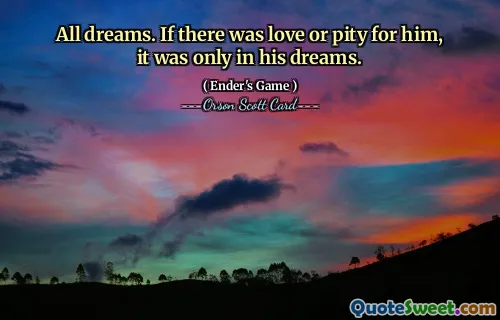You wish you had not come. If there were not so many around, you would reach out your arms, with the prayer on your lips for it all to come back to you. It seems cruel, cruel, to give us such a vision; to let us dream and drift through heaven for six months, and then to take it out of our lives.
The quote expresses a deep sense of regret and longing. The speaker feels a profound sadness about the fleeting nature of happiness, which was experienced for a brief period before being cruelly snatched away. This sense of loss is intensified by the presence of others, suggesting that shared experiences can heighten individual feelings of isolation and despair. The desire to return to a state of blissful ignorance is evident, revealing the pain that comes from the awareness of what was once attainable.
In the context of Erik Larson's "The Devil in the White City," this sentiment underscores the theme of tragedy intertwined with beauty. The juxtaposition of dreams and their subsequent loss reflects the historical backdrop of the fair and the lives intersecting within it. The tension between aspiration and reality serves to highlight the fragility of hope and joy, emphasizing how quickly they can disappear, leaving an indelible scar on those who experienced them.






